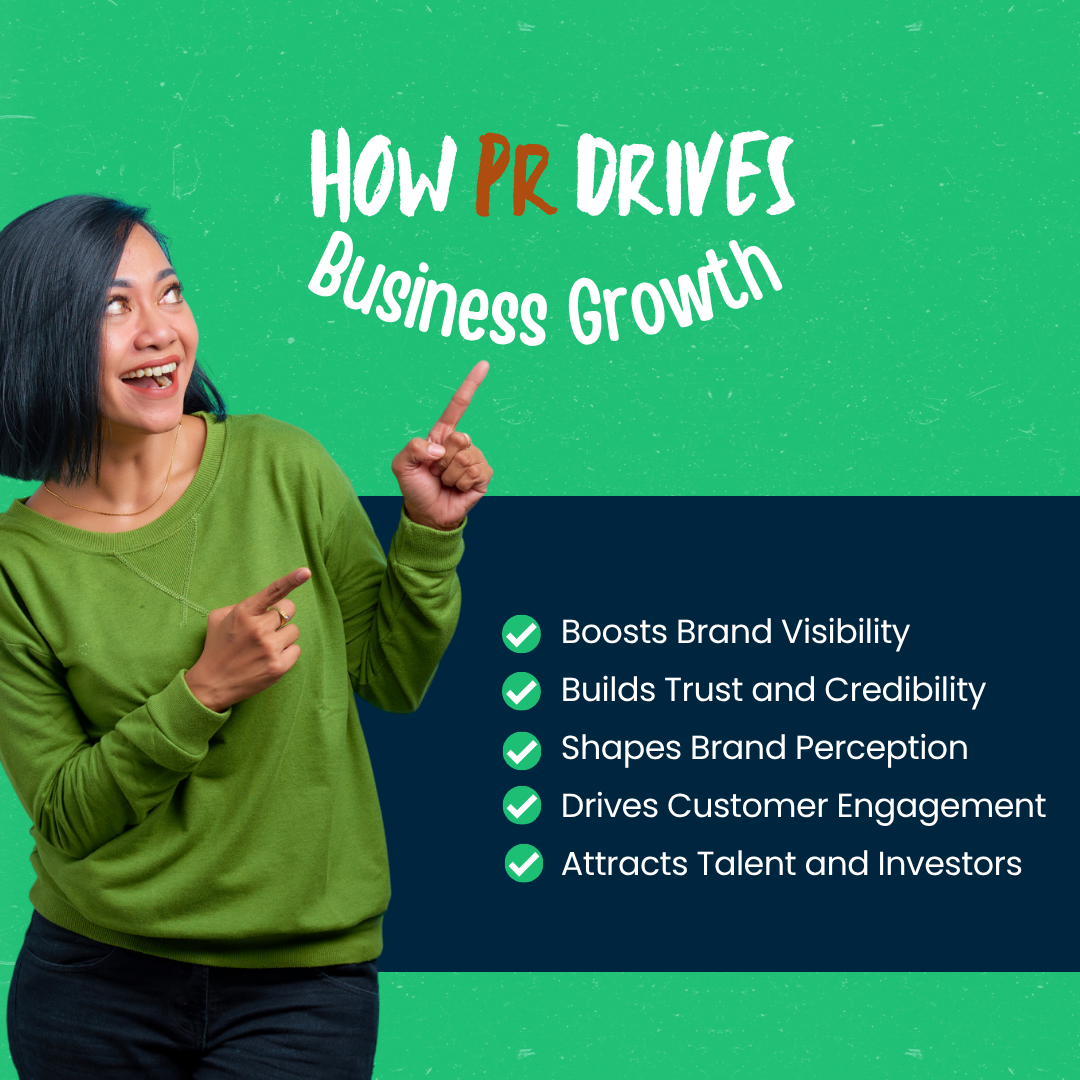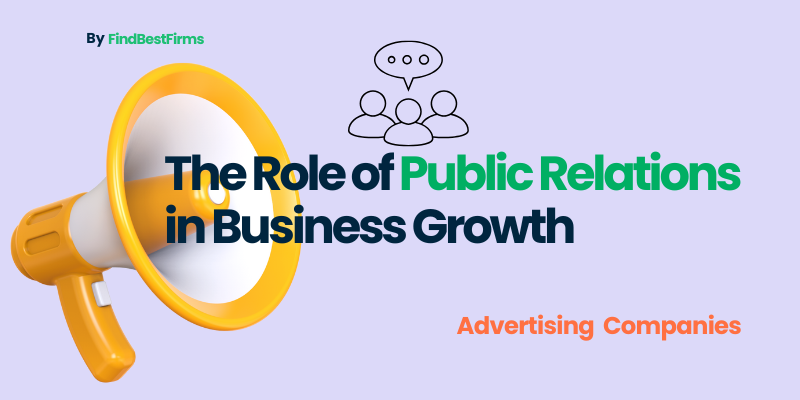Establishing a strong presence and earning credibility often determine a brand’s success or struggle. For startups aiming to stand out or establish enterprises safeguarding their reputation, Public Relations serves as a key driver for influencing public perception—an essential factor that directly impacts business expansion.
Public Relations (PR) is no longer just about press releases and media coverage. It has evolved into a strategic tool that helps businesses build credibility, nurture relationships, and communicate their value to the world.
Why Public Relations Remains Crucial Today
You might think that PR is only necessary by the large corporations but the truth is that every brand regardless of its size can use PR to its advantage. Consumers can only do business with companies that they trust. It is gained not only due to the quality products or services but how the company projects itself to the rest of the world.
In a time where social media, online reviews, the opinions of influencers, and the media lead to consumers feeling a certain way about a brand, PR is the connection between your business and your customers. It will make sure that you only have the story that you want people to hear.
PR is useful in providing visibility, managing a brand crisis, managing thought leadership and creation of same brand stories. It is more than ever in line with your sales, marketing and business development objectives.
What Is Public Relations?
Public Relations is the practice of managing the flow of information between a business and the public. It involves crafting messages, managing reputations, handling media, and creating opportunities for positive exposure.
But unlike advertising, PR is earned—not paid. It relies on trust, credibility, and storytelling. A positive news article about your business will usually carry more weight than an ad because it's seen as more authentic.
At its core, PR is about relationship-building. That means staying connected not just with media outlets but with customers, stakeholders, investors, and the wider public. Effective PR ensures that the right messages reach the right people at the right time—whether it’s launching a product, responding to a crisis, or amplifying a CSR campaign.
How PR Drives Business Growth

Public Relations is not just a brand-building tool; it's a revenue-enabling function that directly and indirectly fuels growth.
a. Boosts Brand Visibility
Visibility is one of the most valuable currencies in business. PR increases your brand's exposure across various media channels, including TV, online publications, blogs, podcasts, and social media. This increased presence helps more potential customers discover your products or services.
For example, a feature story about your company in a popular industry publication can lead to increased website traffic, social media engagement, and even sales inquiries.
b. Builds Trust and Credibility
People are more likely to engage with and buy from brands they trust. PR helps build that trust by positioning your business as an expert in your field. When your company is quoted in a respected outlet or featured on a reputable podcast, it sends a strong signal to potential clients, customers, and investors that you’re legitimate and trustworthy.
c. Shapes Brand Perception
How people perceive your brand can determine your success or failure. PR allows you to take charge of the narrative and craft how your brand is viewed by the public. Whether you're innovative, customer-centric, sustainable, or socially responsible—PR communicates those attributes effectively.
d. Drives Customer Engagement
Effective PR campaigns are interactive. They spark conversation, encourage user-generated content, and create buzz around your brand. This leads to deeper emotional connections with customers, which in turn fosters loyalty and advocacy.
e. Attracts Talent and Investors
Businesses with strong reputations attract better talent and more investment opportunities. A well-positioned PR story that showcases your culture, innovation, or leadership can bring top-tier professionals and strategic investors to your doorstep.
PR Benefits for Different Business Types
Different types of businesses require different PR approaches, but the benefits remain universal.
Startups
Startups often operate with limited budgets and minimal market presence. PR offers them a way to gain early visibility without the high costs of traditional marketing. Whether you're announcing a funding round, introducing a new product, or telling the story of your founder's journey, PR provides the credibility and attention startups need to grow.
Small Businesses
Local and community-based PR can be incredibly valuable for small businesses. Being featured in local newspapers, news websites, or podcasts can bring in new foot traffic, website visits, and social media followers. It can also enhance relationships with the community, which is critical for long-term customer retention.
Large Enterprises
Large corporations often need PR to manage public perception at scale. Whether it's handling a crisis, launching a nationwide campaign, or communicating social responsibility initiatives, PR ensures consistency in message and reach across markets.
Large enterprises also benefit from executive thought leadership and global media placements, which maintain their competitive edge.
Effective PR Strategies That Contribute to Growth
Growth-focused PR goes beyond just getting mentioned in the media. It’s about building consistent, value-driven strategies that align with your business goals.
a. Storytelling
Humans connect through stories. Sharing the "why" behind your business, highlighting customer success stories, or talking about the journey of building your company resonates far more than facts alone. Good PR leverages storytelling to humanize your brand.
b. Media Outreach
Strategically pitching journalists and influencers with newsworthy stories can earn you valuable mentions in blogs, articles, and interviews. These earned mentions help expand your reach without paying for advertising.
c. Thought Leadership
By publishing blogs, whitepapers, or opinion articles—or speaking at industry events—you position yourself as an authority. This boosts your credibility, aids SEO efforts, and helps your audience trust your expertise.
d. Event PR
Organizing or participating in industry events, trade shows, or panel discussions gives you opportunities to showcase your brand. PR helps maximize exposure before, during, and after the event by handling press releases, media invites, and post-event coverage.
e. Reputation Management
Every business faces negative feedback or bad press at some point. PR ensures you're ready to respond. From issuing timely statements to engaging with reviewers or addressing misinformation, a solid reputation management strategy can save a brand’s image during tough times.
PR in the Digital Age
The digital revolution has changed how PR works. Traditional media relations are still important, but now they're just one piece of the puzzle. Digital PR focuses on integrating PR with SEO, content marketing, and social media strategy.
Today, PR also involves:
- Monitoring brand mentions and sentiments in real-time
- Collaborating with influencers on product launches
- Using SEO best practices to make PR content discoverable online
- Engaging directly with your audience through platforms like LinkedIn, Instagram, and Twitter
Digital tools have made PR more measurable, targeted, and timely—giving businesses more control over how their brand is presented and perceived online.
In-House vs. PR Agency: What’s Right for Your Business?
Depending on your budget and business goals, you can either manage PR in-house or hire a professional PR agency. Each has its pros and cons.
In-House PR
- Pros: Better brand alignment, quicker communication, control over messaging
- Cons: Limited media connections, possibly less industry experience, can be time-consuming
PR Agencies
- Pros: Access to broader media networks, experience across industries, creative campaigns, crisis expertise
- Cons: Higher cost, may require time to fully understand your brand
Many companies choose a hybrid approach—an internal marketing lead supported by an external PR agency. This allows for strategic alignment while leveraging the agency’s media relationships and creativity.
Measuring the Impact of PR on Growth
PR is often seen as intangible, but with the right tools and KPIs, you can track its effectiveness and tie it directly to business outcomes.
Essential PR metrics include:
- Number of media mentions and press hits
- Website traffic increases post-campaign
- Social media engagement (likes, shares, comments, mentions)
- Backlinks from earned media (for SEO boost)
- Share of voice in the market
- Brand sentiment analysis using tools like Meltwater or Brand24
By regularly analyzing these metrics, you can assess which strategies are driving real results and refine your PR efforts accordingly.
PR Mistakes That Can Hold Back Your Growth
PR can be incredibly powerful, but if not managed well, it can also backfire. Avoid these common mistakes:
- No Clear Messaging: Conflicting or vague messages confuse audiences and weaken brand trust.
- Overhyping Announcements: Media fatigue can occur if every small update is treated as headline news.
- Ignoring Crisis Planning: Every business should be ready with a PR response plan in case of negative publicity.
- Being Reactive Instead of Proactive: Don’t wait for problems. PR should be a continuous, proactive effort to build relationships and trust.
- Not Measuring Results: Without tracking KPIs, you’ll never know if your PR is truly working.
Public Relations isn’t a quick-fix tactic; it’s a long-term investment that builds the foundation for sustainable business growth. It enhances brand equity, builds customer and stakeholder trust, supports marketing efforts, and positions your business as a credible player in the industry.
From startups trying to get noticed to global corporations managing complex brand identities, the role of PR cannot be overstated. And with the support of skilled professionals whether in-house or through trusted Public Relations Companies, your brand can reach new heights.
In a digital world where perception drives decisions, PR gives your business the voice, visibility, and value it deserves. Whether you’re starting small or scaling big, make PR an intentional part of your growth strategy.
Need help crafting a winning PR plan? Consider consulting with experienced Public Relations Companies that understand your industry and goals.

